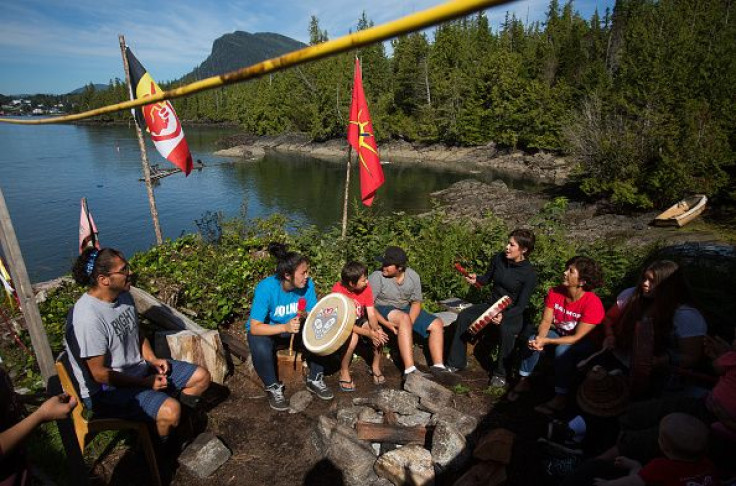After Pre-Teen Suicide Pact, Rates Among Canadian Indigenous Community Explored

The Wapekeka First Nation of Ontario, Canada announced a state of emergency after the suicide of a 12-year-old girl last week became the final installment of a suicide pact made among three girls in January, according to CBC News Wednesday.
Wapekeka First Nation declares state of emergency in wake of suicides https://t.co/JwbTNhEf9E
— NishnawbeAski Nation (@NANComms) June 21, 2017
Jenna Roundsky, 12, was found dead at a hockey rink on June 13, 2017. In January 2017, two of her friends fulfilled a suicide pact by taking their lives within two days of each other, according to a Wapekeka statement. After Jolynn Winter and Chantel Fox took their lives, the Wapekeka community took measures to prevent other children from doing the same.
Wapekeka is one of the First Nations of Ontario, Canada. First Nations people, as well as the Inuit and the Métis, are referred to as Aboriginal people.
After Fox and Winter committed suicide, the community flew out children they feared would also commit suicide so they could be treated and monitored around the clock. One of the four children flown out was Roundsky, the third girl in the pact. However, even after the measures the community took, she completed the pact less than six months later by taking her own life.
“Our people are getting tired. We need help, boots on the ground, people properly trained to assess and determine and help as needed,” Wapekeka spokesman Joshua Frogg and Fox’s uncle said to the Toronto Star. “We don’t need 11 and 12-year olds on the front lines trying to save their friends.”
Mental health has been a particularly heavy topic for Aboriginal, indigenous people of Canada. Despite this, groups of Aboriginal communities have high rates of seeking help for mental health issues with rates going as high as 17 percent, as opposed to the Canadian average of 8 percent. According to the study “Aboriginal Mental Health: The statistical reality,” these rates would likely be higher if proper mental health professionals were provided in these areas.
First Nations communities, such as Wapekeka, have suicide rates twice the national average. Females attempt suicide more than males in these communities, with a survey reporting that 19 percent of females in Aboriginal communities have attempted suicide. Twenty-six percent of First Nations people said depression interfered with their lives, compared to 16 percent of the overall Canadian population who said they were affected by depression.
According to an Aboriginal Suicide Prevention Resource Toolkit, members of Native reserves experience the effects of a community member’s suicide more deeply because of the closeness of residents. This could lead to “echo” cluster suicides, in which suicides occur over a period time. The pact made among the three girls can be considered an “echo” cluster suicide. The awareness of this occasional practice is part of why Wapekeka took immediate preventative measures after Winter and Fox committed suicide in January.
Wapekeka’s funding for their annual Survivors of Suicide Conference was cut two years ago. The conferences were implemented for survivors of pedophile Ralph Rowe, former Anglican priest and Boy Scout leader. He reportedly sexually abused hundreds of First Nations boys beginning in the 1990s.
When Wapekeka discovered the suicide pact six months ago, Health Canada originally denied their request for mental health funding, saying it was an “awkward” time for their budget.
“Awkward? It was awkward for us to bury two young children in the middle of winter, in -30, -40 degree weather,” Frogg said at a January news conference in Parliament Hill, where he and other community members met with Prime Minister Justin Trudeau.
Afterward, the Canadian health ministry promised Wapekeka $380,000 in emergency funding. So far, they have only delivered $95,000 — money the community used to hire mental health professionals.
© Copyright IBTimes 2024. All rights reserved.











